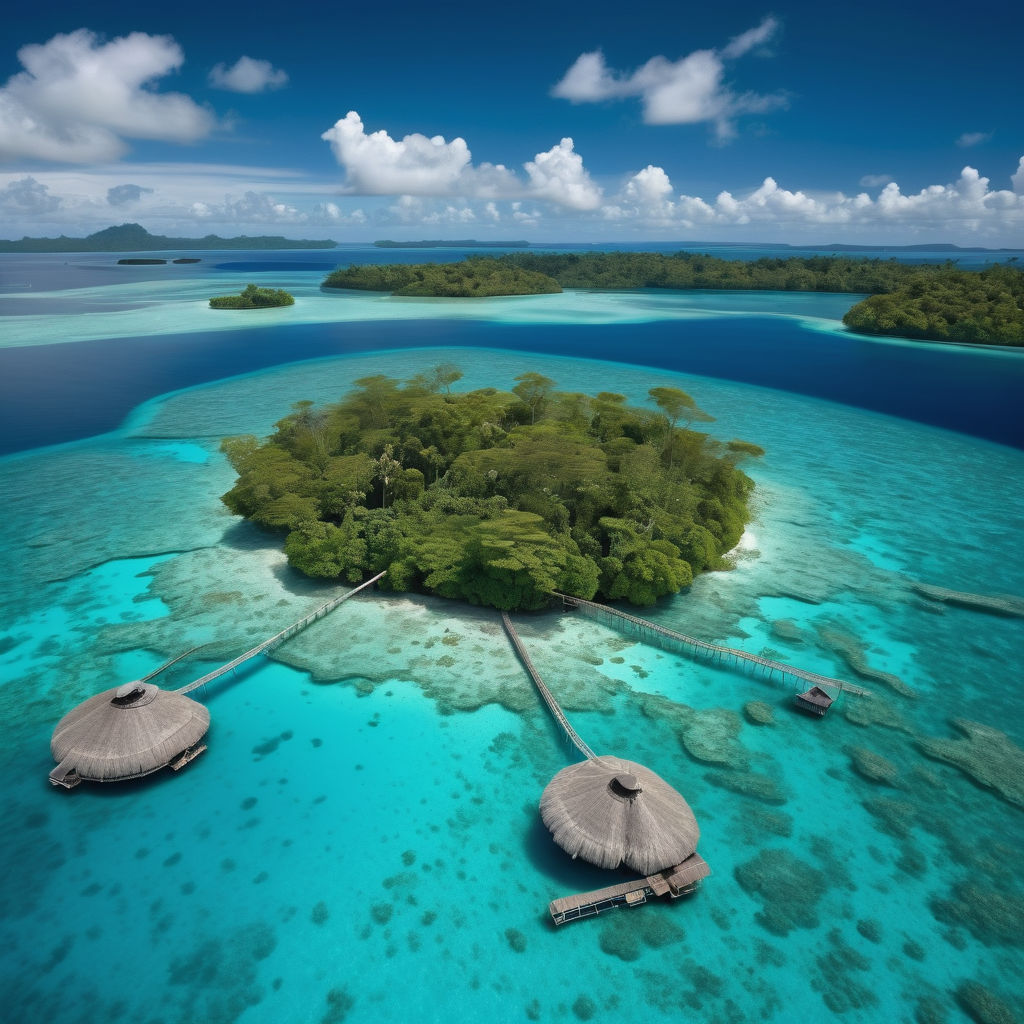Introduction to Solomon Islands: A Cultural and Natural Paradise
Explore Solomon Islands: Traditions, Natural Beauty, and Cross-cultural Harmony

Introduction to Solomon Islands
The Solomon Islands, an archipelago located in the southwestern Pacific Ocean, comprises nearly 1,000 islands, forming a sovereign nation within the Oceania region. It lies east of Papua New Guinea and northwest of Vanuatu. The capital city, Honiara, is situated on the island of Guadalcanal and serves as the political and economic hub of the country. The Solomon Islands is renowned for its breathtaking natural beauty, including lush rainforests, volcanic islands, and vibrant coral reefs. Its rich cultural heritage reflects a tapestry of Melanesian, Polynesian, and Micronesian influences, shaped over thousands of years. The cultural landscape of the Solomon Islands is diverse and vibrant, with each island and community boasting unique traditions, languages, and customs. Traditional music, dance, and art play a significant role in daily life and ceremonies, reflecting the deep cultural roots of the Solomon Islanders.
Cross-national and Cross-cultural Understanding
The people of the Solomon Islands are generally welcoming and open to other cultures, influenced by their history of trade, exploration, and colonial interactions. This openness is evident in the country's approach to cross-cultural understanding and engagement. Cultural exchanges are integral to life in the Solomon Islands, with numerous festivals and events celebrating both local and international traditions. The annual Solomon Islands Arts Festival, for example, showcases the rich cultural diversity of the islands and promotes cultural understanding through music, dance, and art. The festival often features international participants, fostering cross-cultural exchanges and mutual appreciation. Educational programs in the Solomon Islands emphasize global awareness and cross-cultural understanding. Schools and universities incorporate multicultural perspectives into their curricula, encouraging students to appreciate and respect diversity. International partnerships with institutions in Australia, New Zealand, and other countries facilitate student and faculty exchanges, enriching the educational experience and fostering global connections.
Interactions and Social Dynamics
Typical interactions between Solomon Islanders and foreigners are characterized by warmth, respect, and a strong sense of community. Social behaviors in the Solomon Islands reflect a blend of traditional customs and contemporary influences, emphasizing respect for others, hospitality, and communal living. Communication styles in the Solomon Islands are generally informal and friendly. While English is the official language, Melanesian Pidgin and numerous indigenous languages are widely spoken, reflecting the linguistic diversity of the country. This multilingualism facilitates interactions with tourists and expatriates, making it easier for them to integrate into the local community. Cultural norms in the Solomon Islands place a strong emphasis on respect for elders and community leaders, communal sharing, and a relaxed approach to time. These norms create a welcoming and inclusive atmosphere for foreigners, who often find it easy to adapt to the local way of life.
Views on Dating and Relationships
Attitudes towards dating and relationships with foreigners in the Solomon Islands are generally open and accepting. Solomon Islanders recognize the opportunities for cultural exchange and personal growth that such relationships can bring. However, cultural expectations and traditions do play a significant role in shaping these views. Family involvement is crucial in relationships in the Solomon Islands, with elders often playing a significant role in the approval process. Traditional customs emphasize respect, patience, and the gradual building of trust in relationships. While modern dating practices influenced by global trends are becoming more common among younger generations, traditional values still hold sway in many communities.
Marriage and Family
Marrying a foreigner in the Solomon Islands involves navigating both legal and social considerations. Legally, the country has clear regulations governing marriage, including residency requirements and the need for proper documentation. Socially, cross-cultural marriages are generally accepted, though couples may face challenges related to cultural differences and integration. Familial acceptance is a key factor in cross-cultural marriages. Solomon Islander families can be protective, and gaining their approval is often essential for the relationship's success. However, the diverse cultural landscape of the Solomon Islands means that many families are already familiar with and accepting of different cultural backgrounds, which can facilitate smoother integration for foreign spouses. Trends in cross-cultural marriages reflect the Solomon Islands' open and inclusive society. Many Solomon Islanders who travel abroad for education or work form relationships with individuals from various cultures, bringing back diverse customs and traditions that enrich the local community.